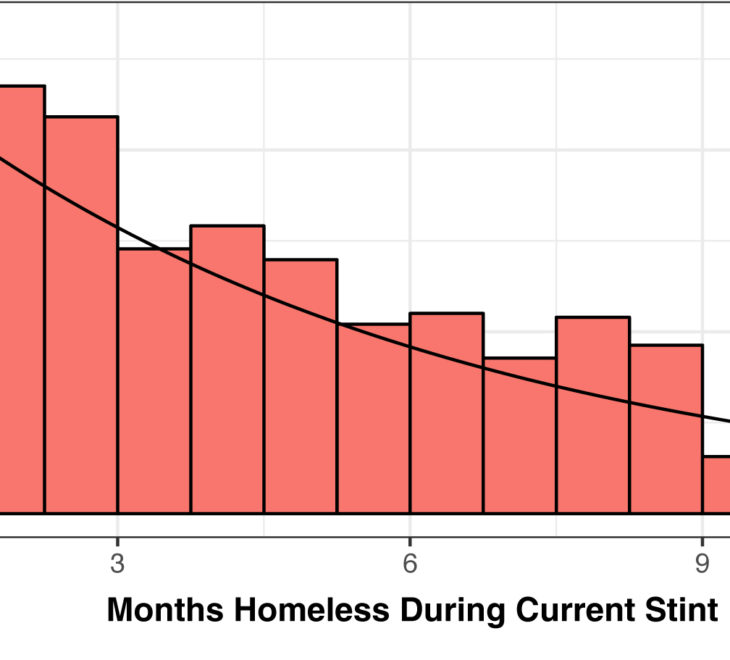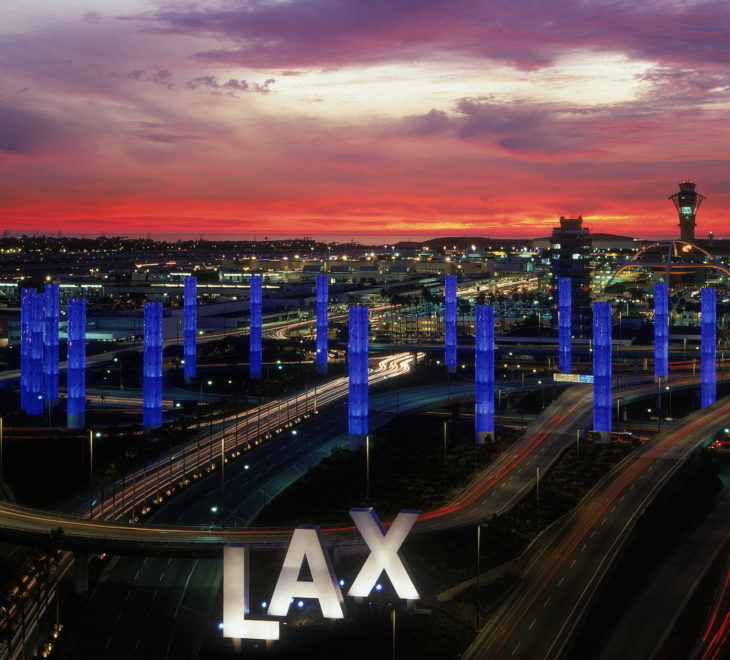FOR IMMEDIATE RELEASE: Thursday, September 28, 2023
Contact: Daniel Flaming, 213-892-8104, danflaming@economicrt.org
One billion square feet of warehouse space causes six million tons of emissions a year
New heavy-duty trucks must be electric starting January 1, but there is a two year wait to get electricity to recharge the batteries
LOS ANGELES – California’s mandates to replace diesel trucks with zero-emission electric trucks will bring cleaner air and better jobs – if they stay on track. Slow action by electric utilities and fierce opposition by trucking companies are real threats.
These precedent-setting mandates are canaries in the coal mine for longer-term national goals for clean air. The upside is that conversion to electric trucking creates good jobs. One job is created for every $111,512 spent annually on electrical infrastructure. The average hourly wage for all frontline electrical construction workers is $35 an hour.
The new Economic Roundtable Report, Exhausting Our Air: Environmental and Human Costs of Diesel Trucks, shows that displacement of brick-and-mortar retail stores by online retailing and sprawling warehouses has come at the cost of climate change, bad air, low wages. There are extreme disparities between neighborhoods where consumer goods are warehoused and neighborhoods that can afford to buy the goods.
“There is so much pollution that comes from the airport that it gives us coughing attacks. We have never smoked a day in our life but our lungs are weak,” said Cesar Avila, a truck driver who lives two blocks from San Bernardino International Airport.
Environmental injustice has gone hand-in-hand with economic inequality. Frontline warehouse workers earn median annual wages of only $25,154. The households that are the primary e-commerce customers are far-removed from the noise and emissions caused by diesel trucks and warehouses and have median incomes of over $150,000 a year.
Petroleum waste products produced by moving consumer goods from the seaports to warehouses, and then from warehouses to affluent homes, are released into the air we all breathe. However, the pollution burden is worst in communities neighboring warehouses and trucking companies, where residents as well as truck drivers and warehouse workers are preponderantly Latino.
“It is criminal to be covering everything up with warehouses. I fight against these warehouses because I am fighting for the respect we should have for the people living here,” said Henry James Vasquez, a retired schoolteacher and Indigenous/Mexican elder in Colton.
The four Southern California counties of Los Angeles, Orange, Riverside, and San Bernardino have over one-billion square feet of warehouses and the worst air pollution in the country. The Economic Roundtable, Sierra Club and People’s Collective for Environmental Justice studied the damage caused by diesel trucks and the challenges facing California’s clean trucks programs.
“I can feel a drastic difference in my health and breathing when I visit the coast compared to the constant air quality issues in the Inland Empire,” said Cynthia Ayala, an Amazon Air Worker at San Bernardino International Airport.
Each year, heavy-duty diesel truck traffic in these four counties creates $1 billion in uncompensated public costs and 6 million tons of greenhouse gases that accelerate global warming.
“We are up against pollution, traffic impacts, truck lanes, and low-paying warehouse jobs. Open space that should be set aside is being consumed for warehouses that produce very few jobs per square foot,” said George Hauge, a retired schoolteacher and environmental advocate who lives in Moreno Valley, a warehouse hub.
The report recommends that city and county officials assess the full environmental and economic impacts before approving any new warehouse construction or the expansion of air cargo facilities. It also recommends that local officials enforce noise regulations for warehouses.
The report goes on to recommend that utility districts proactively upgrade the electrical networks serving trucking companies and warehouses to ensure that electricity is available to recharge trucks as soon as it is needed.
At the state and regional levels, the report recommends establishing a living minimum wage for warehouse workers and safeguarding subsidy funds for battery recharging stations to ensure that small trucking companies can survive the transition to zero-emission trucks.
A companion report, Demolishing Homes for Air Cargo: San Bernardino International Airport Gateway Specific Plan, scrutinizes a flawed environmental impact report that reaches the unsupported conclusion that creating low-wage warehouse and air cargo jobs justifies demolishing affordable housing, reducing air quality and increasing traffic congestion.
######
The Economic Roundtable is a nonprofit urban research organization that produces evidence-based analyses to identify actionable solutions to social, economic and environmental problems.
The People’s Collective for Environmental Justice champions clean air and environmental and racial justice.
The Sierra Club is working to get stronger environmental and energy laws that will reduce dependence on fossil fuels, protect the oceans and coastal environments, and help protect jobs.













